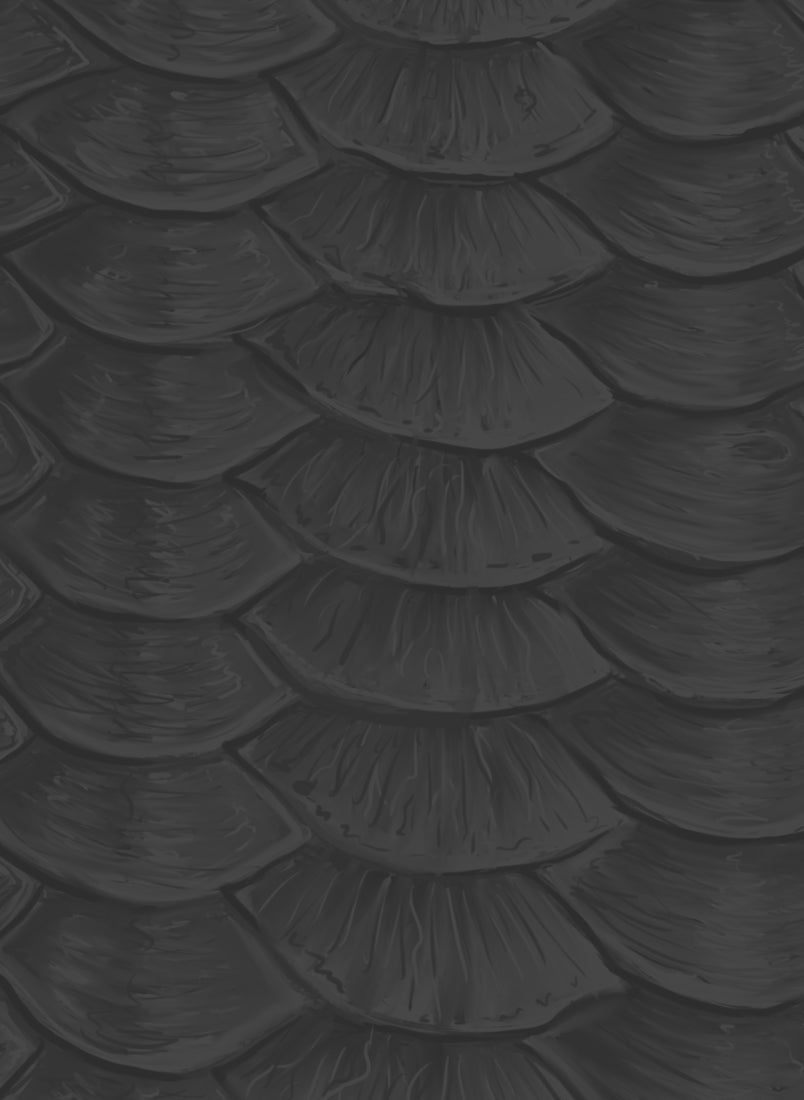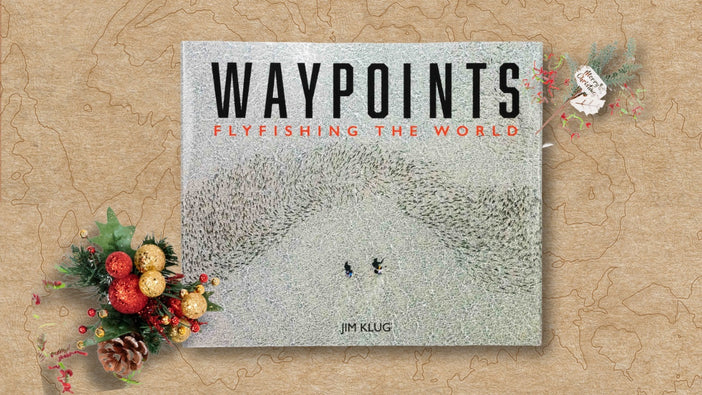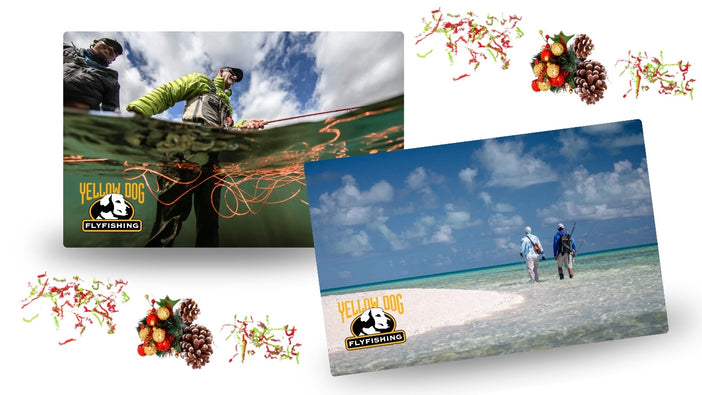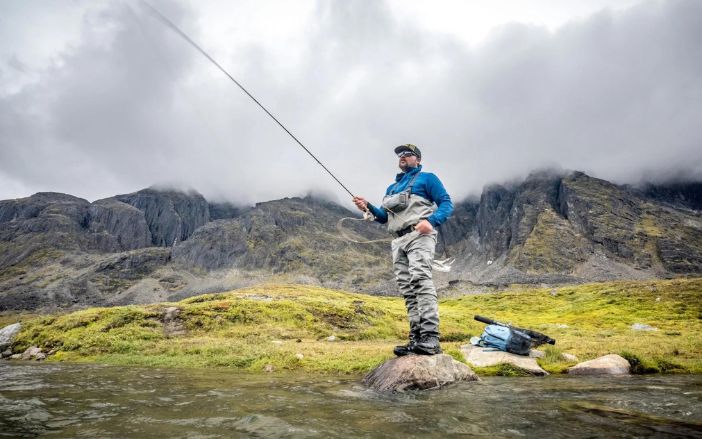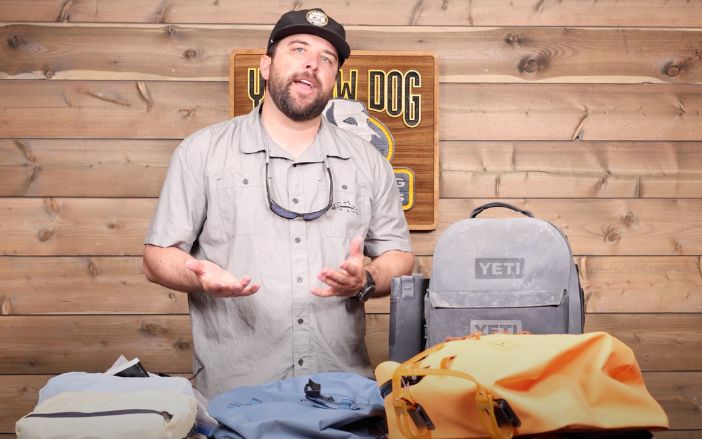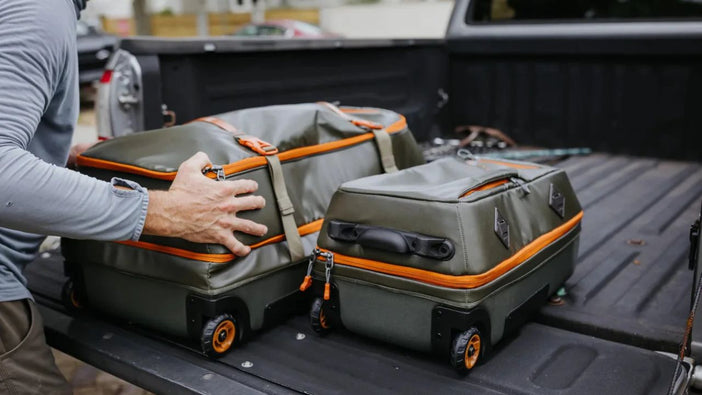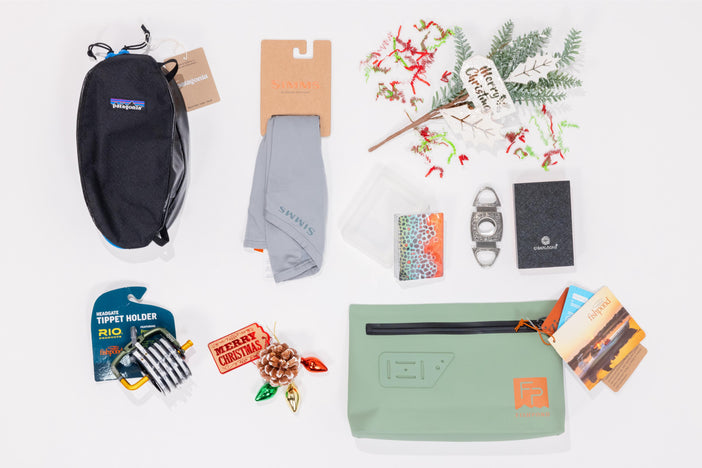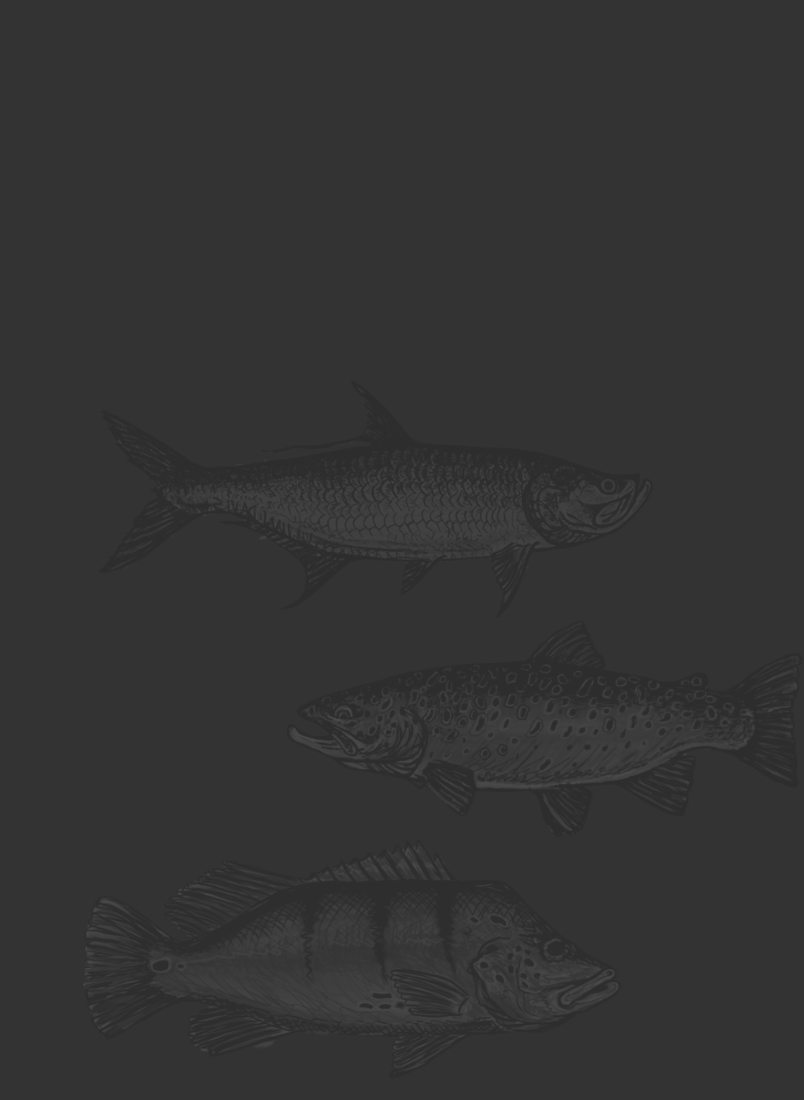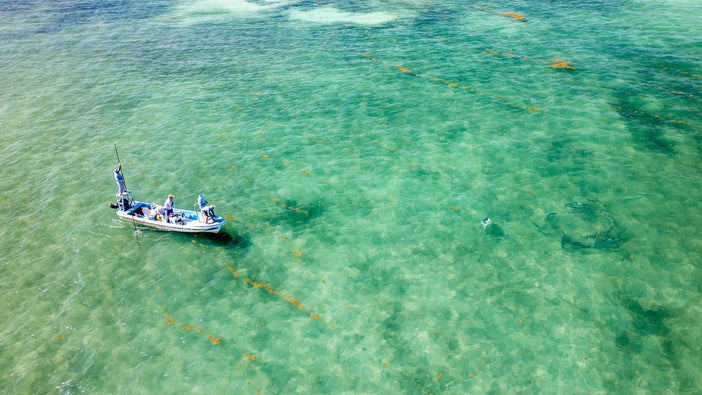On nearly all of our fly-fishing trips, boats are an essential component. Fly fishing from a boat allows you to cover more water, act more stealth-like and provides the guide with a crucial tool to get you into more fish—which usually means a lot more fun.
Fishing from a boat is often a team sport: guide and angler working in tandem to fish, cast to, hook, and eventually land a fish. All the parts of the whole must add up. Since many fishing trips involve sharing a boat with a friend or family member, the angler not fishing on the bow or in the front of the front is a vital participant in the boat. Being good at sharing a boat is very important.
Here is a boat-load of tips for being the best boatmate on the flats or the river.
A clean and tidy boat is a happy boat—keep your flip flops or other gear stored and away so they won’t become tangled in the slack fly line. When a fish is hooked, or even before, ensure the deck of the boat is clear of anything that may tangle the fly line.
Discuss and agree on a fair way to alternate optimum fishing areas in the boat – bow and stern of a drift boat or rotating the front of the skiff on a flats boat. For example, when on a saltwater flats skiff, try 20 minutes fishing and 20 minutes not fishing or shot for shot. In a drift boat, consider rotating every hour, of half-day, or whoever is fishing higher in the water column is in front and whoever is dredging could be in the back.
On a flats skiff, if it is windy, keep an eye on your partner’s feet to make sure they are not stepping on their line and offer assistance if it will not interfere with their cast. This is very important if the angler is attempting to recast to the same fish.
Get drinks out of the cooler for your partner on the deck or the guide on the platform or on the oars.

Bring lens wipes and be willing to share – offer to clean your guide and your boatmate’s sunglasses.
Six eyes are better than four. If your partner or the guide does not see a fish and you do, point it out to them, but do it in a cool, calm manner and not overly excited.
A bag of beef jerky goes a long way to maintaining focus and the guide and your partner will love you for it.
When saltwater flats fishing and the potential to catch a variety of species exists, have an assortment of rods rigged and ready for access. Lay them on the gunnel of the boat with the tips pointed to the stern. When a different rod is needed quickly, hand the rod to the angler, and then take the other rod from them on the opposite side of their body. It is like a golf caddy and a few seconds make the difference between a good clean shot and a lost opportunity.
On the flats, especially when poling in search of fish, be conscious of boat noise because any type of banging noise will scare fish. Opening or closing a hatch or a cooler lid slamming, a dropped fly box on the deck, heavy footsteps, etc. can spook nearby fish.

Do your best to stay centered in the middle of the boat and always let your boat mates know if you are going to leave the boat. If someone does leave the boat, counterbalance by high-siding—the side highest above the surface of the water—to keep the boat centered.
A guide’s boat is his or her office, so treat it with respect. Help the guide keep the boat clean and don’t ever put your feet up on the steering wheel or center console or adjust the navigation system.
On a windy day, assist in ensuring the slack line laying on the deck is managed and ready to be cast when a fish is spotted.
If you do pull your phone out, use it to snap a picture or to possibly play some tunes; always be sure to share your pictures and that your music playlist is legit.
Key Takeaways:
1. Mind the line. The traditional role of the Boat Buddy. The angler on the bow strips line into a pile in the boat. You make sure the pile is tidy, not coiled on itself, and definitely not hooked around stray sandals or extra gas tanks or the butt of the ‘cuda rod. The corollary to this rule is that you should keep that area on the deck of the boat clear of stuff that the line could get tangled on.
2. Rig other rods. Once your friend is up there and ready, you can work on rigging other rods. Maybe your bonefish rod needs a new leader or you need to finish up the haywire twist on the shark rod. This is an excellent time to get other gear ready so you can make the most of the time in your fishing day.
3. Help spot fish. No, your eyes aren’t as good as your guide’s. No, you don’t have the extra height gained by standing on the bow. That’s okay – you can still help. The guide and the active angler can each only look in one place at one time… in short, six eyes are better than four.
4. Tidy things up. It’s just a bad idea to have a bunch of random stuff loose in your boat. Loose stuff can snag fly lines, can be tripped over in the heat of the battle, and can fly out of the boat when you’re up on step. Help keep things tidy by putting loose flies back into their boxes, zipping up boat bags, putting away lifejackets and raincoats, tucking sandals up into storage areas, picking up bottle caps, etc etc etc. Every little bit helps.
5. Be quiet. No matter what you do – whether you’re eating your lunch or rigging another rod – stay quiet at all times. When we say quiet here we’re less worried about talking, and much more worried about anything banging around in the boat. Some classic noisemakers that you want to avoid are slamming the cooler, dropping anything on the deck, dragging anything along the deck, and banging rods in and out of rod holders. Fish on the flats don’t like stuff banging around above their heads.
And, lastly, be sure to ask your angling partner if you can drink the last beer.
Related Articles:





